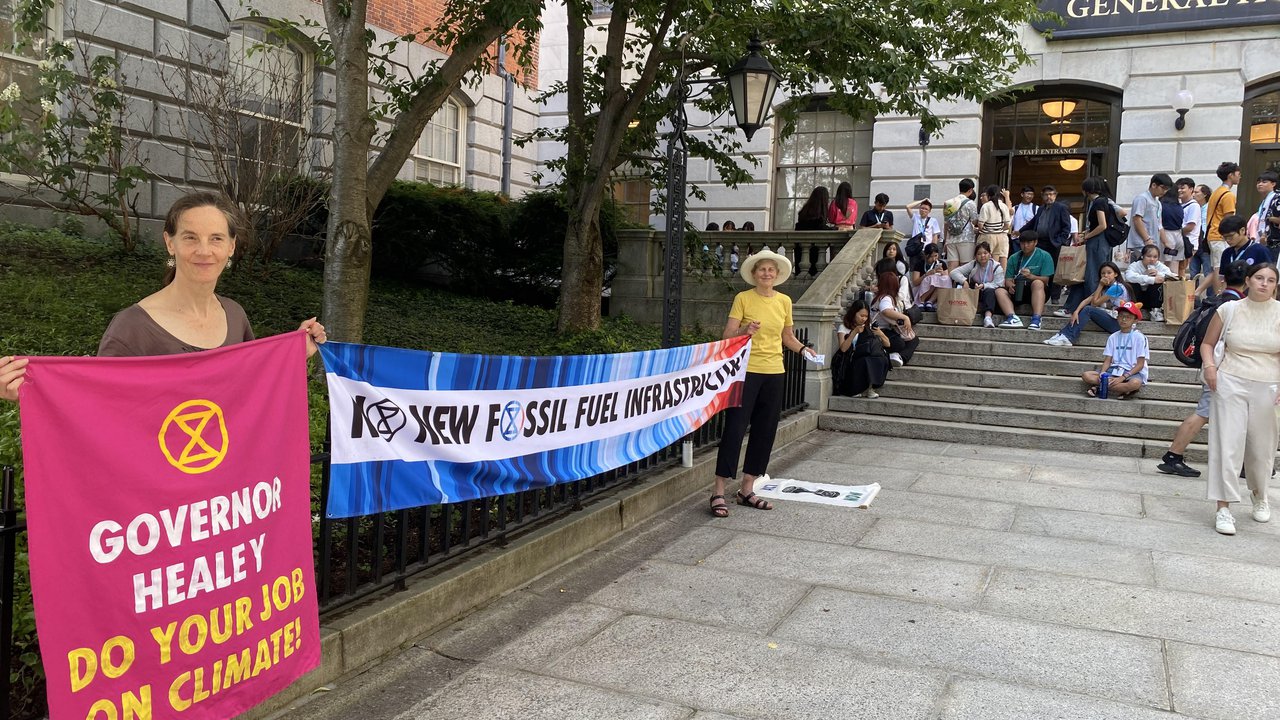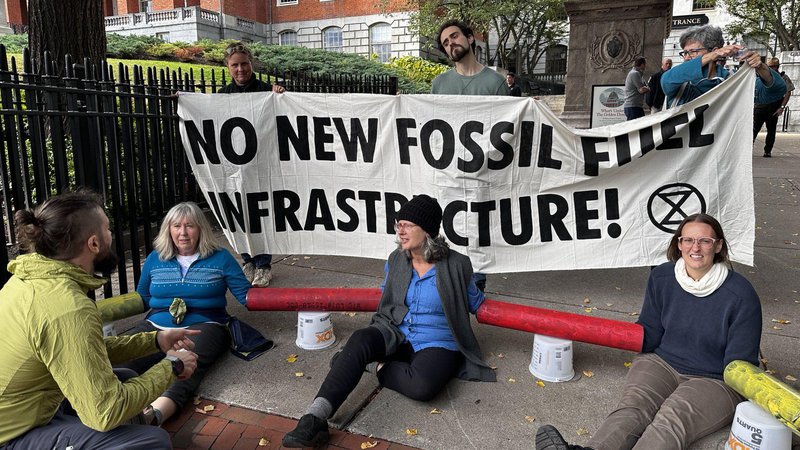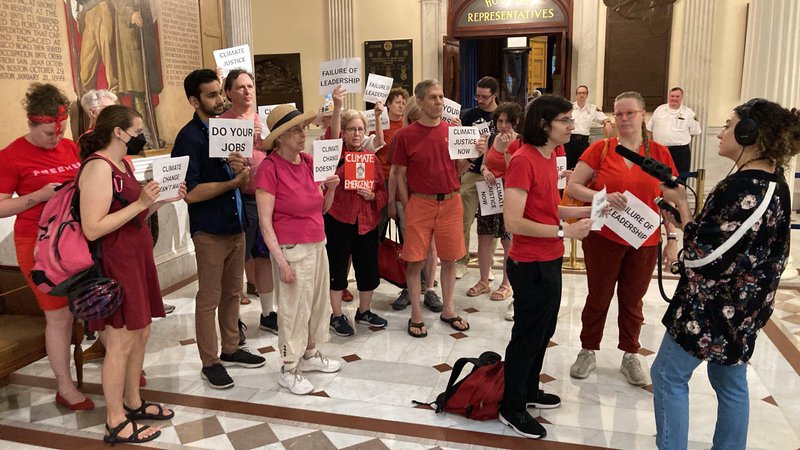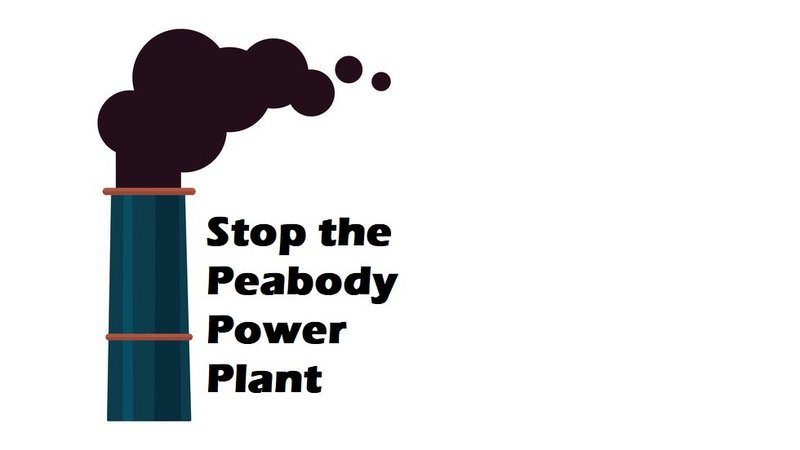
The Department of Public Utilities “Beyond Gas” Decision and What it Means
It's time to talk about it. On December 6, the Massachusetts Department of Public Utilities released a document with the stated purpose of "Investigation by the Department of Public Utilities on its own Motion into the role of gas local distribution companies as the Commonwealth achieves its target 2050 climate goals." If you're hoping for a decisive document that levies actual consequences against fossil fuel uses in utility companies, you'll be disappointed. The document opens up the conversation of transitioning away from gas, in a way that hopefully will inspire other states to take similar actions, but it does not guarantee a timely transition.
From the moment it landed, the DPU decision was widely discussed in climate circles, and has been the subject of some cautious celebration. For example, Kyle Murray from the Acadia Center says, "The Order today from the DPU has the potential to be one of the most transformative decisions in Massachusetts climate history... They reject adding renewable natural gas (RNG) into regular gas supply, not because of ideological reasons, but for reasons of cost, availability, and questionable greenhouse gas reductions. The Order also includes other major Acadia Center priorities, such as coordinated gas/electric system planning, as well as a strong endorsement of the central role for efficient, electric heating and cooling technologies such as heat pumps." For another in-depth review of the document, we recommend this article from Sierra Club Massachusetts.
What does the DPU decision do?
The DPU established themselves as enthusiastic and optimistic about electrification and efficiency technologies, including geothermal districts. The decision states that utilities must prove “non-pipe alternatives” are non-viable and cost-prohibitive before using ratepayer money for new gas projects. Non-pipe alternatives include electric heat, like heat pumps/mini splits, energy efficiency, and other demand management strategies.
The decision states that the transition away from gas must protect ratepayers, include equitable workforce development, and ensure a just transition for existing workers. The decision also says that ratepayers will not pay for false solutions like “renewable” natural gas (RNG) and hydrogen, except in "hard-to-decarbonize cases." Ratepayers will not pay for other decarbonization “strategies” designed to keep the gas system alive or marketing for expanding gas. Utilities will be accountable for creating emission reduction plans and running pilots of targeted decommissioning projects.
What does the DPU decision not do?
Let's be clear that this decision is a good step. This is a good model for the rest of the country as we push the Overton window into influencing policy. This decision does not guarantee No New Fossil Fuel Infrastructure, so it does not meet XR Boston's multi-year campaign of demands for our government. This is not our solution, but it is a step forward! One big shortcoming is that the stated goal of the decision is to decarbonize before a 2050 deadline, rather than a 2030 deadline. Scientists have already warned that 2050 is far too late.
The decision does not expressly ban utilities from adding new customers to the system or expanding gas infrastructure. It also declines to make a recommendation on how to address the Gas System Enhancement Plan that replaces aging pipes. It doesn’t offer recommendations on improving public participation in energy siting, which is being addressed in a separate docket at the DPU. In addition, the DPU is putting responsibility on the utility companies to show that a non-pipeline alternative is not available, before installing pipelines to meet an alleged energy demand need. In essence, this is an honor system placed on companies who have financial incentive to act without honor.
How should the DPU decision influence our thoughts about Governor Healey?
To answer this question, our newsletter team asked one of XR Boston's long-time organizers, who responded, "I don't think one can reasonably say that Healey's election was a major turning point in our efforts to decarbonize. Other than the DPU report saying that there isn't a future for natural gas in this state, her administration has done virtually nothing to implement policies that would actually reduce GHG (carbon dioxide equivalent) emissions. She and Climate Chief Hoffer have yet to announce targets for banning new gas hookups and for 100% electrification of buildings. She has not publicly supported opposing new fossil fuel infrastructure including the expansion of local airports/airfields (Hanscom, Hyannis, and the silent expansion of Logan)."
They continued, "Despite promising to make efforts on halting tree cutting in state forests, there have been no permanents bans. Logging is a carbon intensive activity and actively hurts future carbon removal. Last, but not least, Healey has no plan to tackle transportation-related emissions which make up around 50% of our state's GHG inventory. The Commonwealth is off track on its decarbonization pathway established by the 2021 Next Generation Roadmap law."
In short, Healey might be taking steps that no other Governors have taken, but it's still too little too late. In response to the crisis we are in, her responses aren't close to enough.
Shouldn't we celebrate the DPU decision, to encourage lawmakers to continue heading in this direction?
Extinction Rebellion's third demand, "Beyond Politics", frees us from the pressure to praise politicians for inadequate action. Change-making organizations that work within the system have incentive to cajole and praise, because they use bureaucratic methods of pressure. However, because our fundamental mission is to change the system itself, we are able to demand what is actually necessary. Our first demand is "Tell the Truth," meaning that governments must express the urgency of the climate crisis, and the only way to properly encourage this way of being is to demonstrate it ourselves. We cannot allow ourselves to be satisfied by anything less than the necessary actions. Our future depends on it.
Related Stories:
Featured:
-
The third annual Week of Rebellion is full of opportunities for celebration and action!
-
Our government had the opportunity to finally turn our state into a "climate leader," and they decided yet again to prioritize profits and political posturing over the well-being of residents.
-
Prominent climate scientists and activists demand immediate climate action in the United States.
-
Stop the Fossil Fuel Industry, Now: List of events for Extinction Rebellion Boston's September week of rebellion
-
A compilation of books, movies, articles, and ways to take action to protect Black lives
-
Nadia Colburn, PhD and member of Extinction Rebellion Media team, discusses how to talk about the climate and ecological crisis with family and friends.
Upcoming Events:
-
Sun Jul 20th @ 4 p.m.
-
Fri Jul 25th @ 6 p.m.
-
Sun Jul 27th @ 1 p.m.


